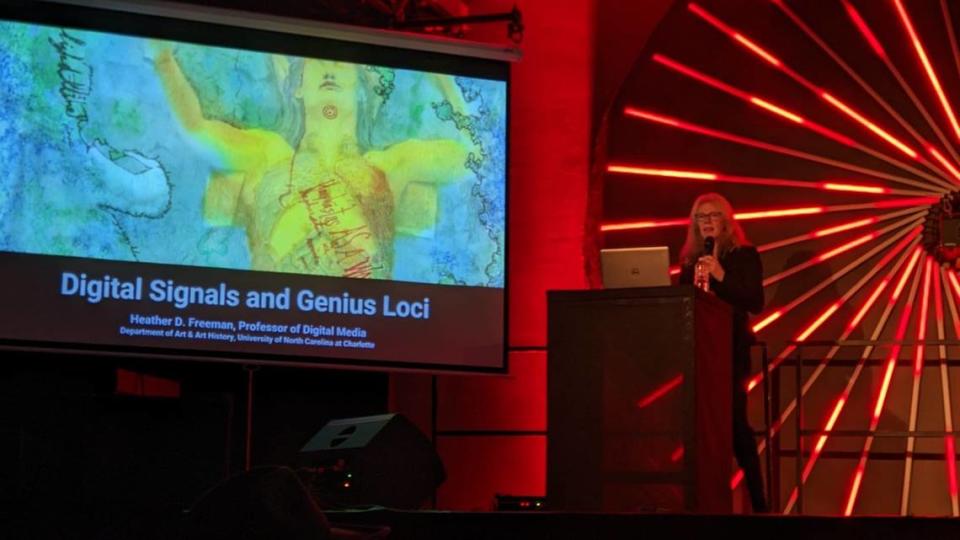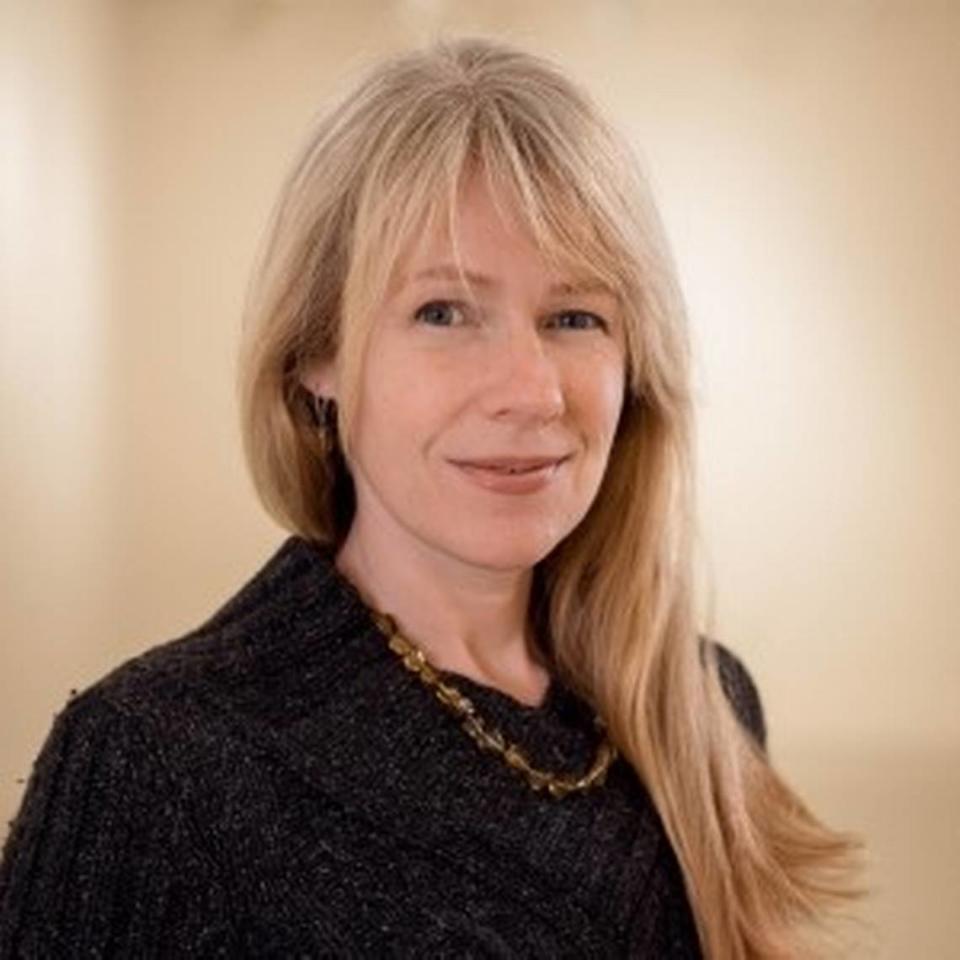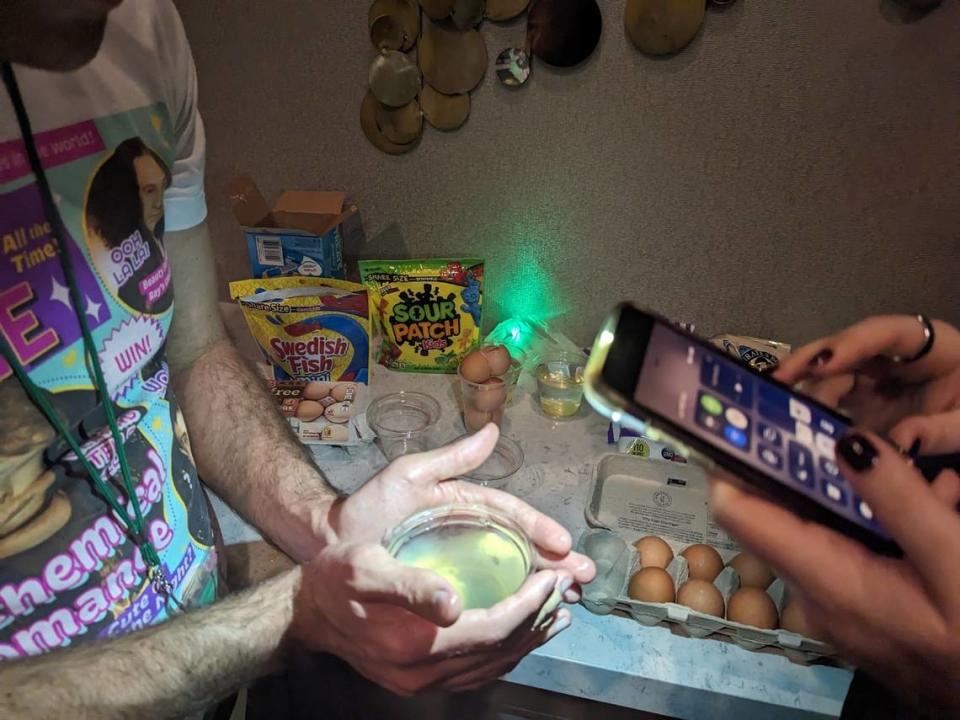UNC Charlotte professor casts a spell with her new podcast on ‘Magic in the US’
Do you believe in magic? UNC Charlotte digital media professor Heather Freeman most emphatically does.
Her latest podcast aims to dispel the notion that magic is simply the tropes with which the word has become associated: wands, crystal balls and pulling rabbits out of hats.
Instead, Freeman’s working definition considers the collective sum of the rituals and practices that many engage in to exact some measure of control of the things that exist in the invisible realm.
To that end, her new podcast, “Magic In The United States,” explores, “how everyday Americans have mixed magic, religion, spirituality and belief for over 400 years, and introduces the remarkable people who are living these practices today.”
The professor in UNC Charlotte’s College of Arts + Architecture received nearly $400,000 in funding from the National Endowment of the Humanities to produce three six-episode seasons of the series that debuted in the fall. It is available for free on all major podcast platforms, and explores a range of magic-related topics and communities — from Wiccans to Neopagans.
Freeman acknowledges that when many hear the word magic, they think of mainstream names like David Copperfield and Harry Houdini. Or maybe even Harry Potter. While Season 1 of the podcast does feature an episode on Houdini, she is quick to note that stage magic is not her expertise.
There is, however, a relationship between the illusory arts and the kind of ritualized mysticism that her series does explore. “I think there is a connection in terms of the theatrical sense of our desire for things to be other than they appear,” she said. “Though they are different, both inspire that sense of wonder.”

Applying scientific method to spirituality
Freeman’s upbringing did not seem to predict her eventual mystical interests.
“I’m the child of two scientists. My dad was a physicist and a computer programmer, and my mom was an epidemiologist and a neurologist briefly too,” Freeman said. “So I was raised with a rich appreciation for the scientific method for empirical knowledge.
As a youth, she didn’t embrace religion or spirituality. In fact, she describes herself as having been raised “militant atheist.”
“I very actively blocked off this entire aspect of human existence because it didn’t fit cleanly into like how I wanted to understand the rational world. And so instead of finding another way to know things, I just rejected it wholesale, which is not scientifically sound,” Freeman said.

One goal of her current podcast project is to make the invisible visible by telling the stories of the people and practices that are the keepers of esotericism.
By placing a spotlight on their work and communities, it also helps normalize their mores and traditions, which aligns with Freeman’s broader personal ethos that emphasizes inclusion and belonging.
Diving into magic and communities
Early on, Freeman’s realization of bias in some parts of academia against religious studies and things like magic sparked her intellectual curiosity. This mindset of exclusion, she argues, ignores how “complex and nuanced the individual experience of magic and religion is.”
One of the things “Magic In The United States” reveals is how the words magic, witchcraft and sorcery are often used as a pejorative against a marginalized group. Sometimes participants are racially or culturally marginalized, or marginalized by gender, Freeman said.
Her podcast also suggests that people who participate in magical rituals and practice are not doing something all that different from those who assemble in houses of worship.
Listeners are challenged to consider questions like what is the distinction between prayer and a spell? “We’ve had magic or religious practices throughout human cultures around the world for as long as we know, so this isn’t a new thing,” Freeman said.
“One of the things that’s interesting is the idea that emerged post-Enlightenment that somehow belief in an invisible world or a supernatural world was now dead,” she said. “But that’s just not the case.”

In her work on this project, she learned that many practitioners have a system that they describe as their “spiritual practice,” a phrase that folks tend to be more comfortable using in lieu of “religion” or “magic.”
The first episode of the podcast’s first season introduces listeners to the Rev. Aaron Davis, who practices Hoodoo, a form of magical healing and conjure with origins in the rural South. Episode 5 delves further into the practice, which was developed by enslaved Black Americans to provide medical care and protection to their community.
Planning ahead
Freeman’s work is interdisciplinary, and she has long explored magical and mythical beliefs and practices in her academic and artistic work through a variety of forms, including two-dimensional prints and watercolors, interactive websites and mobile apps, animations and even film.
She is no stranger to podcasts either. An earlier effort, “Familiar Shapes,” examined the parallels between the printing press during the early modern witch trials and bots on social media during the last decade through audio and visual presentation.
There are only six episodes per season of the magic podcast. The attention to detail and veracity (the program has a fact-checker) takes time and is produced with the same intellectual rigor not unlike the scientific method. Though the last episode of the first season has dropped, listeners can expect a new season sometime in the late spring of 2024.
In addition to researching and writing the next season, and the rest of her academic responsibilities, she is working on a series of planetary drawings, among other projects.
A large part of her personal interest lies in the relationship between digital technologies and magical practices. But sometimes, she craves the rituals of the analog world.
“Sometimes I just need to have a pencil in my hand and just do old-fashioned drawings too,” she said.
More arts coverage
Want to see more stories like this? Sign up here for our free “Inside Charlotte Arts” newsletter: charlotteobserver.com/newsletters. You can join our Facebook group, “Inside Charlotte Arts,” by going here: facebook.com/groups/insidecharlottearts. And all of our Fall Arts Guide 2023 stories are here: charlotteobserver.com/topics/charlotte-fall-arts-guide

